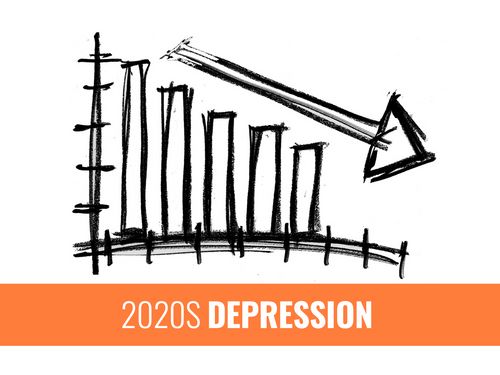He predicted the 2008 crash. Now he thinks a Depression is coming.
Jul 03, 2020 · 2 mins read
0
Share

In 2006, economist Nouriel Roubini was one of only a handful of people who predicted the 2008 housing crash and subsequent recession. Governments could have used it as an opportunity to fix structural problems. Instead, he says, they “kicked the can down the road”.
Save
Share
Now we are paying for it. Even if the world economy manages to have a ‘U-shaped’ recovery after Covid-19, long term trends are in place that will mean a ‘Greater Depression’ will follow in the mid to late 2020s. The factors playing into this perfect storm:
Save
Share
Huge levels of borrowing. Government debt was already unsustainably high before the pandemic hit. Add in rising household and corporate debt thanks to falling income and revenue, and you see why any recovery will be anemic at best.
Save
Share
Demographic time bomb. Covid-19 exposed the weaknesses of most national health care infrastructures. Because most developed countries are ageing fast, health and social security systems will go ever more into debt to fund provision of care.
Save
Share
Deflation. Massive underused capacity in production and labor will cause a fall in prices and wages, making it harder for companies and people to service their debts. The rate of bankruptcy and insolvency increases.
Save
Share
Debasement of currencies. As governments run out of ways to avoid deflation, they turn to extreme measures: instead of borrowing money to fund deficits, they simply print money. It doesn’t fix the economy. Instead you get high inflation + high unemployment = stagflation.
Save
Share
Digital disruption. To avoid supply chain shocks, companies move production back to home countries. It doesn’t create jobs or higher wages, because they invest in automation to save costs. The result: a new age of wealth inequality, populism and extreme politics.
Save
Share
Deglobalization. The pandemic exposed the risks involved in globalization. The new world will have tighter restrictions on movement of goods, services, labor, technology and data. A deglobalized world will see a new Cold War between the US and China, Russia and Iran. Cyber warfare will ramp up.
Save
Share
Environmental threats. Poor health and sanitary standards, abuse of natural systems, and international connectivity will mean that the effects of pandemics and climate change become more frequent, severe, and costly.
Save
Share
Bottom line: These risks “now threaten to fuel a perfect storm that sweeps the entire global economy into a decade of despair”, says Roubini. Technology and better political leadership may solve some of the problems... but that’s assuming the world survives the devastation of the coming Greater Depression.
Save
Share
0